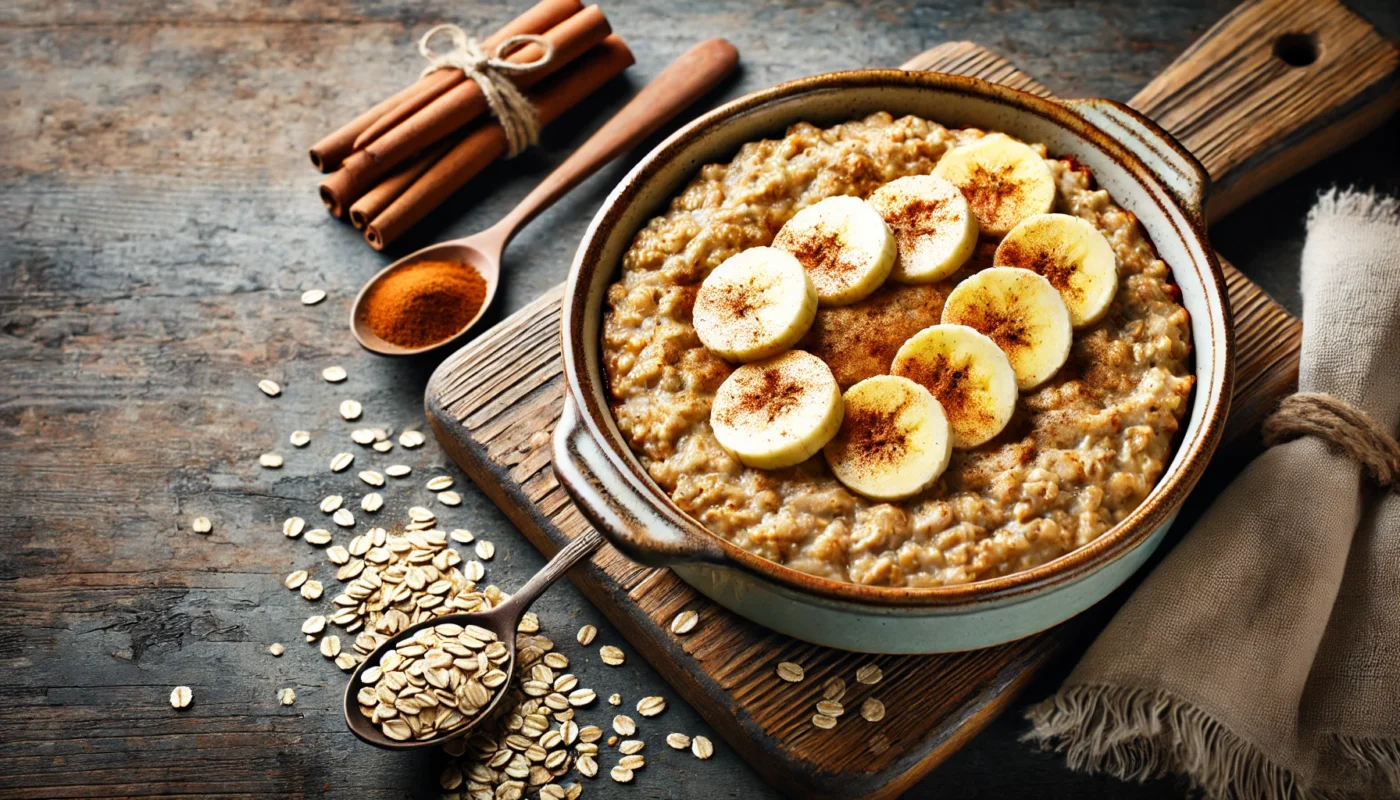In the quest for optimal health, the foods we consume play a pivotal role. One food that often sparks curiosity is oats. Known for their high fiber content and heart-healthy properties, oats are a staple in many diets. But, are oats inflammatory or do they possess anti-inflammatory properties?
This article aims to explore the relationship between oats and inflammation. We’ll delve into the scientific research behind this topic, making it accessible and understandable for all readers. Whether you’re a fitness enthusiast, a health enthusiast, or a medical patient, this article will provide practical, detailed advice on how oats can be incorporated into your diet for improved health outcomes.
We’ll also debunk some common myths about oats and inflammation. Misinformation can often lead to confusion and unnecessary dietary restrictions. Our goal is to provide you with accurate, evidence-based information to help you make informed dietary choices.
By the end of this article, you’ll have a comprehensive understanding of the anti-inflammatory properties of oats. You’ll also learn how to effectively use this knowledge to optimize your personal health and fitness. So, let’s embark on this journey of discovery together, starting with a deeper understanding of inflammation and diet.
You May Also Like: Inflammatory Diseases: Causes and Treatments Explained
Understanding Inflammation and Diet
Inflammation is a natural and necessary process in our bodies. It helps us fight infections and heal injuries. However, chronic inflammation can cause various health issues. Conditions such as heart disease, diabetes, and arthritis are often linked to persistent inflammation.
Diet plays a significant role in managing inflammation levels. Certain foods are known to promote inflammation. These include refined carbohydrates, sugary drinks, and red meats. On the other hand, some foods have anti-inflammatory effects and can help reduce inflammation.
An anti-inflammatory diet typically includes fruits, vegetables, nuts, and whole grains. These foods are rich in antioxidants and other beneficial nutrients. They can help to counteract the effects of inflammatory foods.
Here’s a quick list of components of an anti-inflammatory diet:
- Omega-3 fatty acids: Found in fish and flaxseeds.
- Antioxidants: Found in berries and green leafy vegetables.
- Fiber: Abundant in whole grains like oats and legumes.
Incorporating these components into your diet can support your body’s natural defense systems. While inflammation serves its purpose, keeping it in balance is key. Utilizing nutrition to manage inflammation is a proactive approach to long-term health.
Understanding which foods to include and avoid can empower you in your wellness journey. Armed with this knowledge, you can make dietary changes that support your health objectives. As we dig deeper into oats, we’ll uncover how they fit into this anti-inflammatory picture.
The Nutritional Profile of Oats
Oats are a nutrient-rich whole grain that boasts an impressive nutritional profile. They are packed with essential vitamins, minerals, and antioxidants. These nutrients contribute to the overall health benefits associated with oats.
A standout component of oats is their high fiber content. Specifically, they contain a type of soluble fiber known as beta-glucan. This fiber is renowned for its cholesterol-lowering and heart-protective properties. It also promotes a feeling of fullness, which can be beneficial for weight management.
In addition to fiber, oats provide a good source of plant-based protein. This protein is particularly valuable for those following vegetarian or vegan diets. Including protein-rich foods like oats in your meals can help meet daily protein needs.
Here’s a snapshot of what oats offer:
- Vitamins: Rich in B vitamins, especially thiamine and riboflavin.
- Minerals: High in manganese, phosphorus, magnesium, and iron.
- Antioxidants: Avenanthramides and phenolic acids contribute to their antioxidant capacity.
Oats also have a low glycemic index, making them ideal for blood sugar management. This quality is especially important for individuals with diabetes or insulin resistance. Consuming low glycemic index foods helps maintain stable blood sugar levels.
Moreover, oats are naturally gluten-free. However, they may be contaminated with gluten during processing. For those with celiac disease or gluten sensitivity, ensuring oats are certified gluten-free is crucial.
The nutritional richness of oats makes them a smart addition to any diet. They offer a wide array of health benefits, from supporting heart health to managing weight. As versatile as they are nutritious, oats can be a valuable staple in a balanced diet.

Are Oats Inflammatory or Anti-Inflammatory?
The question of whether oats are inflammatory or anti-inflammatory often arises among health enthusiasts. There’s a prevalent myth suggesting oats may cause inflammation. However, scientific research tends to support the opposite view.
Oats are generally considered anti-inflammatory, largely due to their high content of soluble fiber. This fiber helps reduce inflammation markers in the body, such as C-reactive protein (CRP). Regular consumption of oats can thus play a role in managing inflammation.
Furthermore, oats contain avenanthramides, which are unique antioxidants found primarily in oats. These compounds have been shown to exhibit significant anti-inflammatory effects. They help reduce inflammation in the body, contributing to the oats’ overall health benefits.
The belief that oats could be inflammatory often stems from misconceptions around gluten contamination. Oats themselves are naturally gluten-free, yet they might come into contact with gluten in manufacturing facilities. Consuming certified gluten-free oats alleviates these concerns.
It’s also important to note that oats support gut health, which is vital for overall inflammatory balance. A healthy gut can mean reduced systemic inflammation, enhancing well-being.
Therefore, incorporating oats into your diet can actually aid in reducing inflammation. They can be a beneficial component of an anti-inflammatory lifestyle, promoting heart, digestive, and general health.
The Role of Beta-Glucan in Fighting Inflammation
Beta-glucan is a powerful soluble fiber found in oats, renowned for its health benefits. It plays a vital role in reducing inflammation and supporting immune health.
This fiber works by modulating the immune system. It activates immune cells, which in turn helps to regulate the inflammatory response. This makes beta-glucan a crucial ally in managing inflammation levels.
Moreover, beta-glucan’s cholesterol-lowering effects further contribute to its anti-inflammatory properties. High cholesterol levels are often linked with increased inflammation. By lowering cholesterol, beta-glucan indirectly aids in reducing inflammation.
Avenanthramides: Oats’ Unique Anti-Inflammatory Compounds
Avenanthramides are a group of antioxidants unique to oats. These compounds are critical in providing oats their anti-inflammatory benefits.
Research has shown that avenanthramides can inhibit the production of inflammatory cytokines. By reducing these signaling molecules, they help manage inflammation in the body. This action supports overall cardiovascular health and reduces risk factors for related diseases.
Additionally, avenanthramides have been observed to offer soothing benefits for the skin. Their anti-inflammatory properties extend beyond internal health, aiding conditions like eczema and psoriasis. This makes oats not only beneficial for ingestion but also as topical treatments.
In sum, avenanthramides contribute significantly to the anti-inflammatory profile of oats. Their presence underscores why oats are an excellent choice for those seeking to manage inflammation naturally.
Oats and Heart Health: Cholesterol and Blood Pressure
Oats have long been celebrated for their heart-health benefits. Their unique ability to lower cholesterol is a primary reason behind this reputation. The soluble fiber, beta-glucan, plays a critical role in this process by forming a gel-like substance in the gut. This gel traps cholesterol-rich bile acids and helps remove them from the body.
Research consistently shows that regular consumption of oats can lead to significant reductions in total and LDL cholesterol levels. Lowering LDL cholesterol is essential, as it is often labeled as the “bad” cholesterol that contributes to plaque buildup in arteries.
In addition to reducing cholesterol, oats may contribute to healthier blood pressure levels. Studies suggest that the soluble fiber and antioxidants in oats can improve blood vessel function, leading to better blood flow. Improved vessel function helps maintain optimal blood pressure levels, thereby reducing strain on the heart.
Furthermore, incorporating oats into daily meals can provide a steady source of energy. This sustained energy release is beneficial for maintaining a stable heart rate and blood pressure. As a result, oats not only contribute to immediate heart health improvements but can also support long-term cardiovascular wellness.
Oats in the Management of Blood Sugar and Weight
Oats are praised for their role in blood sugar management, particularly due to their low glycemic index (GI). Foods with a low GI are digested slowly, leading to a gradual rise in blood sugar levels. This makes oats an excellent choice for individuals managing diabetes or insulin resistance, as they help maintain more stable blood sugar levels throughout the day.
The beta-glucan in oats is largely responsible for this effect. It slows the absorption of carbohydrates into the bloodstream, preventing sudden spikes and crashes in blood sugar. This slow digestion not only benefits blood sugar management but also contributes to prolonged feelings of fullness and satisfaction after meals.
By promoting satiety, oats can support weight management efforts. Feeling fuller for longer can help reduce overall calorie intake, aiding those striving to lose or maintain weight. This makes oats an ideal food for weight-conscious individuals seeking to avoid unnecessary snacking or overeating.
Moreover, oats offer a substantial nutritional profile with fiber, protein, and essential vitamins and minerals. These nutrients not only support metabolic health but also ensure the body receives the necessary fuel for efficient energy utilization. Incorporating oats into daily meals can therefore be a powerful strategy in both blood sugar control and effective weight management.

Oats and Digestive Health: The Fiber Effect
Oats are well-known for their high fiber content, which plays a crucial role in promoting digestive health. They contain both soluble and insoluble fibers, each offering distinct benefits to the digestive system. Soluble fiber, primarily beta-glucan, forms a gel-like substance in the gut, slowing digestion and enhancing nutrient absorption.
This gel-like consistency also aids in regulating bowel movements and preventing constipation. It adds bulk to stool, making it easier to pass and reducing the incidence of digestive discomfort. Regular consumption of oats can thus contribute to a more efficient and comfortable digestive process, enhancing overall gut health.
Moreover, the fiber in oats acts as a prebiotic, feeding beneficial gut bacteria and supporting a balanced gut microbiome. A healthy gut microbiome is essential for optimal digestion, nutrient absorption, and immune function. By integrating oats into the diet, individuals can foster a healthier and more balanced digestive system, contributing to overall wellness.
Incorporating Oats into Your Diet
Incorporating oats into your diet is simple and rewarding, offering numerous health benefits. They are versatile and can fit into various meals and snacks. Whether as a part of breakfast or a quick snack, oats are a convenient choice.
To make the most of oats, consider starting your day with a hearty bowl of oatmeal. It provides sustained energy and can be customized with toppings like fruits and nuts. Alternatively, use oats as a base for smoothies to add texture and nutrients.
Here’s a quick list of oatmeal ideas to get started:
- Classic oatmeal with honey and almonds
- Overnight oats with chia seeds and berries
- Savory oatmeal with avocado and poached egg
These options highlight oats’ adaptability in both sweet and savory dishes, allowing for a nutrient-dense meal regardless of your preferences.
Oats for Various Dietary Needs
Oats can be a valuable addition to many dietary preferences and requirements. They are naturally gluten-free, which makes them suitable for those with celiac disease or gluten sensitivities. However, it’s essential to choose certified gluten-free oats to avoid cross-contamination.
For vegans and vegetarians, oats offer a great source of plant-based protein. This makes them an excellent inclusion in a diet that focuses on whole and minimally processed foods. Oats provide essential nutrients without relying on animal products.
Additionally, oats are low in glycemic index, making them favorable for people managing blood sugar levels. Their slow digestion helps prevent blood sugar spikes, offering a balanced energy release, which is particularly beneficial for individuals with diabetes.
Creative Ways to Enjoy Oats
Oats are not limited to traditional bowls of oatmeal. They can be creatively incorporated into various dishes, enhancing both taste and nutrition. Exploring different preparation methods can keep meals exciting and flavorful.
For those looking to add oats to their diet, here are some inventive ideas:
- Oat pancakes or waffles for a nourishing breakfast
- Oat-based smoothies for a refreshing midday boost
- Oats in baking for cookies or bread with a health twist
These options provide diverse textures and flavors, demonstrating oats’ versatility. From baked goods to refreshing smoothies, incorporating oats can be a delicious way to elevate dietary habits while reaping the health benefits they offer.
Potential Risks and Considerations
While oats are beneficial, some individuals may experience issues. Cross-contamination with gluten is a concern for those with celiac disease. It’s vital to choose certified gluten-free oats to avoid these unwanted complications.
Additionally, oats’ high fiber content might not sit well with everyone. Some people may experience bloating or gas, especially if they increase their fiber intake suddenly. It’s advisable to introduce oats gradually into the diet and drink plenty of water to help manage these symptoms. Consulting a healthcare provider for personalized advice can also be beneficial.

Conclusion: Making Oats a Part of Your Anti-Inflammatory Lifestyle
Incorporating oats into your daily routine can be a simple yet effective step towards better health. Their unique nutritional profile and anti-inflammatory properties make them a valuable addition to a balanced diet. By enjoying oats regularly, you can harness their potential benefits for managing inflammation and improving overall well-being.
Keep in mind, the versatility of oats makes them suitable for various dietary needs and preferences. Whether added to smoothies, used in baking, or enjoyed as a warm breakfast, oats offer a delicious way to support your body’s health. With mindful choices and proper preparation, oats can be a significant part of your anti-inflammatory strategy.
Further Reading:
TIME: Is Oatmeal Healthy? Here’s What the Experts Say
National Library of Medicine: Effects of Oats (Avena sativa L.) on Inflammation: A Systematic Review and Meta-Analysis of Randomized Controlled Trials
oats, weight management, digestive health, fiber, gluten-free, plant-based protein, blood sugar control, anti-inflammatory diet, healthy eating, nutrition, meal ideas, dietary needs, gut health, recipes, wellness
Important Note: The information contained in this article is for general informational purposes only, and should not be construed as health or medical advice, nor is it intended to diagnose, prevent, treat, or cure any disease or health condition. Before embarking on any diet, fitness regimen, or program of nutritional supplementation, it is advisable to consult your healthcare professional in order to determine its safety and probable efficacy in terms of your individual state of health.
Regarding Nutritional Supplements Or Other Non-Prescription Health Products: If any nutritional supplements or other non-prescription health products are mentioned in the foregoing article, any claims or statements made about them have not been evaluated by the U.S. Food and Drug Administration, and such nutritional supplements or other health products are not intended to diagnose, treat, cure, or prevent any disease.

